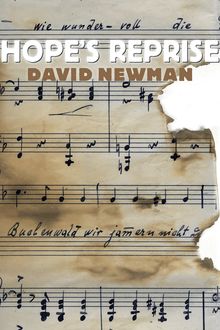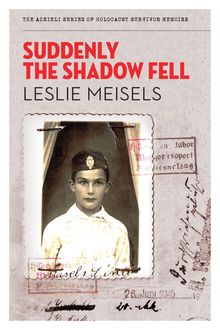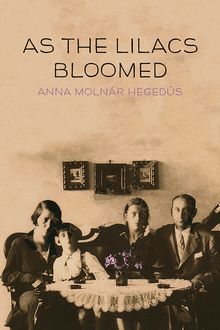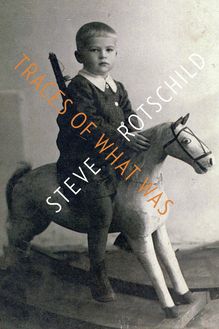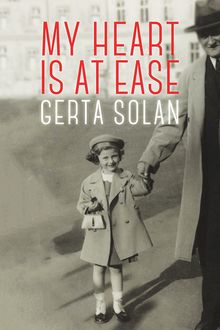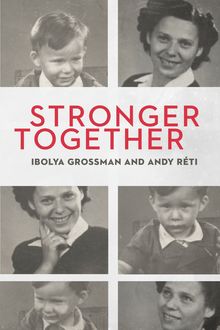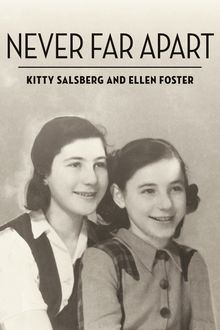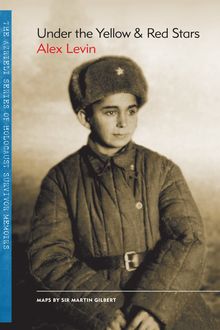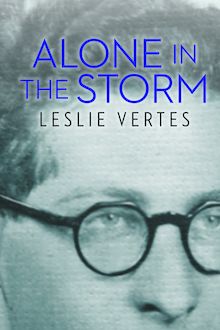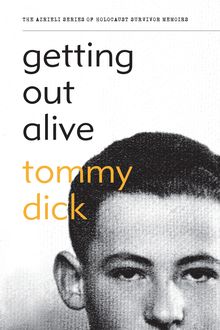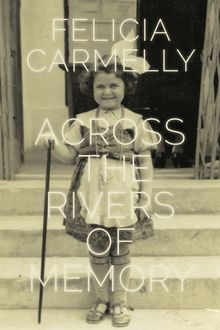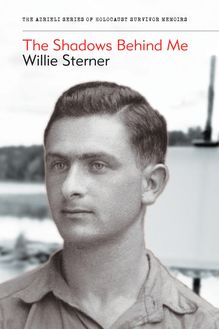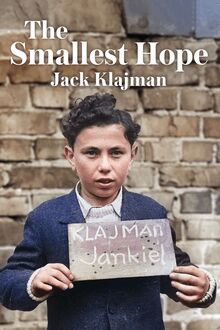The Weight of Freedom , livre ebook
212
pages
English
Ebooks
2015
Vous pourrez modifier la taille du texte de cet ouvrage
Obtenez un accès à la bibliothèque pour le consulter en ligne En savoir plus
Découvre YouScribe en t'inscrivant gratuitement
Découvre YouScribe en t'inscrivant gratuitement
212
pages
English
Ebooks
2015
Vous pourrez modifier la taille du texte de cet ouvrage
Obtenez un accès à la bibliothèque pour le consulter en ligne En savoir plus
Publié par
Date de parution
01 octobre 2015
Nombre de lectures
3
EAN13
9781988065007
Langue
English
Publié par
Date de parution
01 octobre 2015
Nombre de lectures
3
EAN13
9781988065007
Langue
English
The Weight of Freedom
Nate Leipciger
The Azrieli Series of Holocaust Survivor Memoirs
Naomi Azrieli, Publisher
Jody Spiegel, Program Director
Arielle Berger, Managing Editor
Elizabeth Lasserre, Senior Editor, French-Language Editions
Farla Klaiman, Editor
Elin Beaumont, Senior Educational Outreach and Events Coordinator
Catherine Person, Educational Outreach and Events Coordinator, Quebec and French Canada
Marc-Olivier Cloutier, Educational Outreach and Events Assistant, Quebec and French Canada
Tim MacKay, Digital Platform Manager
Elizabeth Banks, Digital Asset and Archive Curator
Susan Roitman, Office Manager (Toronto)
Mary Mellas, Executive Assistant and Human Resources (Montreal)
Mark Goldstein, Art Director
François Blanc, Cartographer
Bruno Paradis, Layout, French-language editions
Contents
The Azrieli Series of Holocaust Survivor Memoirs
Series Preface: In their own words...
About the Glossary
Introduction
Map
Dedication
Acknowledgements
Foreword
Prologue
Photographic Memories
The Slow Roar
Closing In
Beginning of the End
Days of Grey
Kleiner
The Race Against Death
A Hollow Victory
What Was Lost
Lives in Suspension
Turning Points
Social Studies
Moving Forward
The Last Connection
As I Remembered
My Past and My Future
Epilogue
Glossary
Photographs
Copyright
About the Azrieli Foundation
Also Available
Series Preface: In their own words...
In telling these stories, the writers have liberated themselves. For so many years we did not speak about it, even when we became free people living in a free society. Now, when at last we are writing about what happened to us in this dark period of history, knowing that our stories will be read and live on, it is possible for us to feel truly free. These unique historical documents put a face on what was lost, and allow readers to grasp the enormity of what happened to six million Jews – one story at a time.
David J. Azrieli, C.M., C.Q., M.Arch
Holocaust survivor and founder, The Azrieli Foundation
Since the end of World War II , over 30,000 Jewish Holocaust survivors have immigrated to Canada. Who they are, where they came from, what they experienced and how they built new lives for themselves and their families are important parts of our Canadian heritage. The Azrieli Foundation’s Holocaust Survivor Memoirs Program was established to preserve and share the memoirs written by those who survived the twentieth-century Nazi genocide of the Jews of Europe and later made their way to Canada. The program is guided by the conviction that each survivor of the Holocaust has a remarkable story to tell, and that such stories play an important role in education about tolerance and diversity.
Millions of individual stories are lost to us forever. By preserving the stories written by survivors and making them widely available to a broad audience, the Azrieli Foundation’s Holocaust Survivor Memoirs Program seeks to sustain the memory of all those who perished at the hands of hatred, abetted by indifference and apathy. The personal accounts of those who survived against all odds are as different as the people who wrote them, but all demonstrate the courage, strength, wit and luck that it took to prevail and survive in such terrible adversity. The memoirs are also moving tributes to people – strangers and friends – who risked their lives to help others, and who, through acts of kindness and decency in the darkest of moments, frequently helped the persecuted maintain faith in humanity and courage to endure. These accounts offer inspiration to all, as does the survivors’ desire to share their experiences so that new generations can learn from them.
The Holocaust Survivor Memoirs Program collects, archives and publishes these distinctive records and the print editions are available free of charge to educational institutions and Holocaust-education programs across Canada. They are also available for sale to the general public at bookstores. All revenues to the Azrieli Foundation from the sales of the Azrieli Series of Holocaust Survivor Memoirs go toward the publishing and educational work of the memoirs program.
•
The Azrieli Foundation would like to express appreciation to the following people for their invaluable efforts in producing this book: Doris Bergen, Sherry Dodson (Maracle Press), Barbara Kamieński, Therese Parent, Allegra Robinson, Keaton Taylor, and Margie Wolfe and Emma Rodgers of Second Story Press.
About the Glossary
The following memoir contains a number of terms, concepts and historical references that may be unfamiliar to the reader. For information on major organizations; significant historical events and people; geographical locations; religious and cultural terms; and foreign-language words and expressions that will help give context and background to the events described in the text, please see the Glossary .
Introduction
Born in Chorzów, Poland in 1928, Nate Leipciger was among the 11 per cent of European Jewish children under sixteen years old living in what became the theater of World War II who survived to its conclusion. That alone makes him extraordinary. Then too, the percentage of child survivors was not uniform across Europe; at perhaps 1 per cent, the rate for young Jews in Poland was lower than elsewhere, as was the survival rate (10 per cent) for Polish Jews in general. 1 And Jacob Leipciger, Nate’s father, with him throughout the Holocaust years, saw war’s end as well. That, too, marks him as extraordinary.
Yet, in key aspects Nate’s history was typical as he shared the fate of his coreligionists. For him, as for other Jews, family emerged as the bedrock of his life. And, like others, Nate was astonishingly resourceful. At no point did he (or they) sit and wait for the next German blow. Certainly the Germans had the power; they decided what they wanted to do and when that action would unroll. And Nate, like the rest of European Jewry, sought ceaselessly within those narrow parameters to find ways to confront the harsh conditions the Germans imposed; to slip through their lethal net; to lay his hands on food to stay alive.
Nate was five years old when the Nazis came to power in Germany in 1933. They pursued their antisemitic agenda relentlessly. Relying, at first, on individual emigration, they threw Jews out of their jobs and made it impossible for Jewish families to earn a living. Facing poverty and no prospects for a better future, many German Jews fled. The Anschluss of Austria in 1938 gained the Nazis territory they wanted and Jews they didn’t. Berlin sent Adolf Eichmann to Vienna to organize the mass emigration of Austrian Jews. Again the Nazi strategy was successful. In total, of the 800,000 Jews who in 1933 lived within the area that in September 1939 comprised the Greater German Reich (Germany, Austria, Sudetenland, and Bohemia and Moravia), more than 450,000 emigrated. The Germans’ invasion of Poland from the west and, in accordance with a secret agreement with USSR , the Soviets’ invasion from the east, changed the situation, however. For while the Nazis once more got land they wanted, there now was nowhere to send the more than two million Jews under German control, 550,000 of whom (the Leipcigers among them) lived in areas annexed by Germany and 1.5 million in rump Poland, the so-called General Government.
The Germans’ solution was to push the Jews into enclosed ghettos. 2 There were exceptions, however, even in areas annexed to the Reich. And the Leipcigers, forced to relocate (October, 1939) from Chorzów to the larger nearby town of Sosnowiec, lived in such a region. While the Nazis pursued a program of “ethnic cleansing” in most of the annexed territory, deporting Jews and Poles out of the Germanized areas and into the General Government, the Reich’s need to maintain industrial production in eastern Upper Silesia and the adjacent Zaglembie district meant that Poles and Jews, including the Jews in Sosnowiec, remained there. 3
Sosnowiec counted some 130,000 inhabitants in 1938, of whom about 29,000 were Jewish. German troops, followed by the Einsatzgruppen, special squads to murder Polish leaders and terrorize the population, occupied the town on September 4, 1939, and soon set up a Judenrat, or Council of Elders. In the first days of the occupation, an officer commanding some German soldiers abusing a group of Jewish men suddenly demanded who among them were leaders of the Jewish community. Silence reigned until one Moishe Merin stepped forward. In his post-war memoir, survivor Konrad Charmatz remembered Merin as “a short, thin man with mousy eyes who was known as an idler, as a professional gambler, and who was always looking for a loan, which he would never repay.” 4 The Germans appointed him the Judenrat chairman. The power he thus gained over his coreligionists did not improve his character. As Charmatz had noted, Merin sought easy money, and his position, with its contacts with Germans and control over Jews, provided multiple opportunities to achieve this goal. Forced labour and bribery led the list. 5
To protect the German “purity” of the old Reich, Heinrich Himmler, in charge of “ethnic cleansing” in the annexed territories, ordered an internal police boundary (roughly along the former German-Polish border) that effectively imprisoned 850,000 Poles and Jews in a 2,000-square-mile area. This region was now called the Oststreifen , or Eastern Strip. 6 The Germans used cities in the Oststreifen, especially Sosnowiec and its neighbour B ę dzin, as a dumping ground for Jews from areas west of the internal police boundary. But the Germans did not order the establishment of enclosed ghettos in the str


